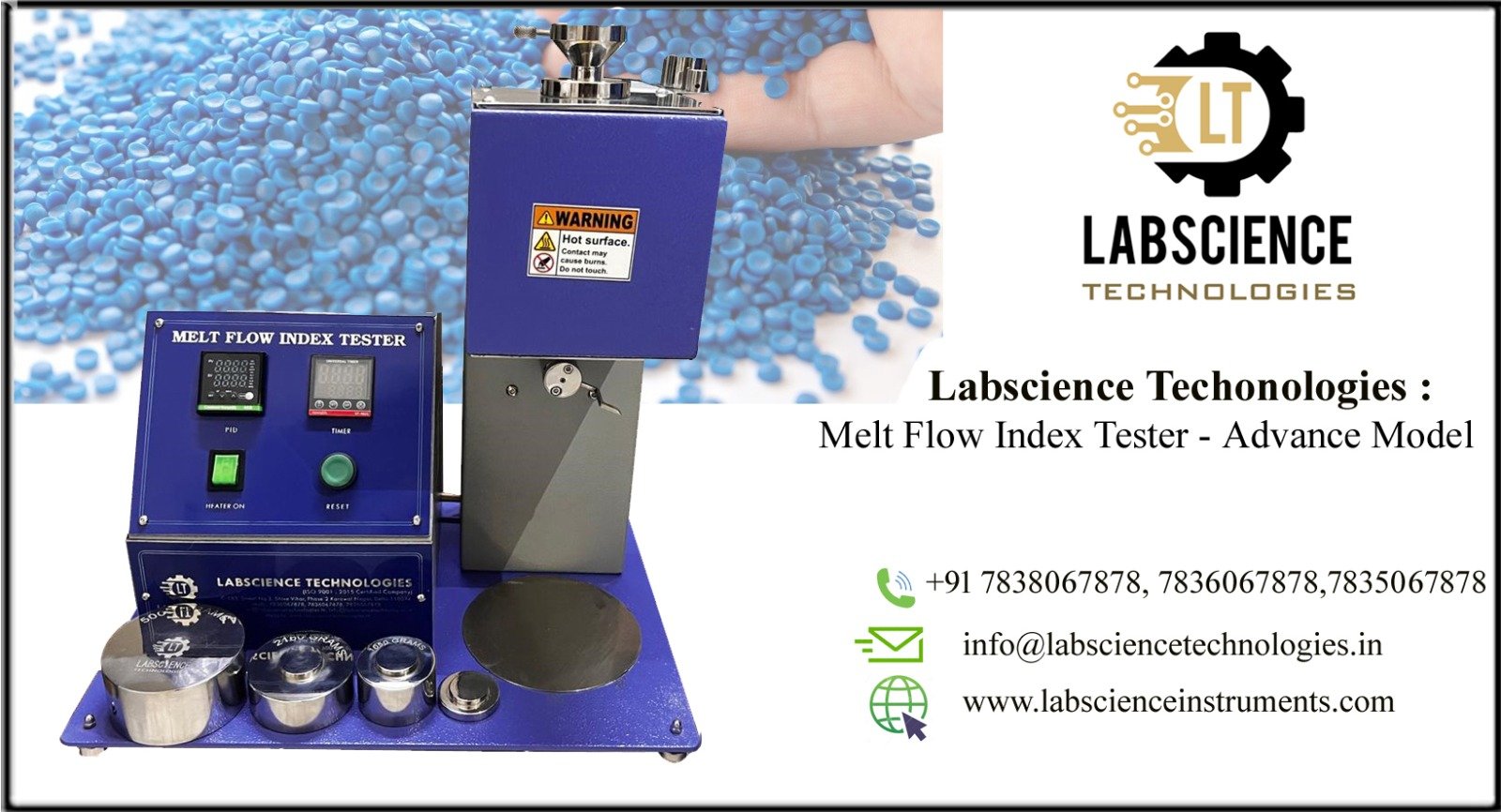MFI tester
In the world of polymer and plastics manufacturing, the MFI tester (Melt Flow Index tester) is a critical instrument that plays a vital role in determining the flow characteristics of thermoplastic materials. The melt flow index tester measures how a plastic material flows under specific conditions of heat and pressure. This data is essential for manufacturers to optimize processing parameters, ensure product quality, and reduce waste.
Understanding the Melt Flow Index Tester
The melt flow rate testing process helps assess the viscosity of the plastic material in its molten state. This test provides insights into how the material will behave during processes like injection molding or extrusion. A plastic MFI tester can determine whether the material is suitable for producing a specific item based on its flow properties.
Industry standards such as ASTM D1238 MFI testing and ISO 1133 melt flow test are widely accepted for conducting these evaluations. These standards ensure that the testing is carried out in a consistent manner across different laboratories, allowing for reliable and comparable data. ASTM D1238 outlines detailed instructions on the procedure, making it one of the most commonly used standards worldwide.
Types of MFI Testers
There are two main types of MFI testers: automatic MFI testers and manual melt flow index testers. Automatic MFI testers automate many steps of the process, making them ideal for high-volume laboratories where precise, repeatable results are needed. These machines minimize human error and are often used in production environments. In contrast, a manual melt flow index tester is more suited for smaller-scale operations or research laboratories that need more flexibility in handling and controlling the testing process.
Key MFI Testing Equipment
MFI testing is conducted using a variety of specialized instruments. Alongside the MFI tester, manufacturers often use equipment like the polymer flow index tester and melt volume rate tester to gain more in-depth information about the material’s flow characteristics. The capillary rheometer for polymers is another essential tool, offering a more advanced analysis of how the material behaves under different shear rates and temperatures. These testing methods provide deeper insights into the behavior of thermoplastics during manufacturing.
A plastic melt flow tester is used across industries, such as automotive, packaging, and electronics, to ensure that plastic materials meet specific requirements for performance and durability. By understanding the polymer melt flow measurement, manufacturers can select the right materials to produce components with consistent quality and performance.
Applications of MFI Testing in Various Industries
In the automotive sector, for example, the melt flow rate machine is widely used to evaluate materials used in making vehicle components like bumpers, dashboards, and interior parts. These components need to be produced from materials that can withstand mechanical stress and high temperatures, which makes melt flow rate testing crucial for selecting the right thermoplastics.
Packaging is another industry where MFI testing equipment is vital. Packaging materials must exhibit specific flow characteristics to ensure they can be processed efficiently while maintaining durability. Using tools like the plastic extrusion tester, manufacturers can determine if a plastic material will perform as expected during the extrusion process, producing items like films, bottles, or containers.
In research and development settings, high-precision MFI testers provide highly accurate data, helping engineers and scientists create new formulations or optimize existing materials. For low-flow materials, a low melt flow polymer tester is used to measure the flow properties of plastics that require high strength, such as those used in heavy-duty applications.
Importance of Accurate Testing Procedures
Accurate testing, following standards like ASTM D1238 and ISO 1133, ensures that manufacturers can maintain control over their materials and processes. The melt index test procedure provides key data that can be used to optimize production conditions, improve material selection, and reduce overall costs. This testing procedure is critical for maintaining quality control and ensuring that products meet the required specifications.
Conclusion
The MFI tester is indispensable in the polymer and plastics industry. It helps manufacturers understand the flow characteristics of thermoplastic materials, ensuring that they meet industry standards and perform well during processing. From manual melt flow index testers to automatic MFI testers, there are various options available to suit different testing needs. Utilizing advanced tools like the capillary rheometer for polymers and plastic melt flow testers ensures that manufacturers get precise, reliable data to inform their production processes. Accurate melt flow rate testing following ASTM D1238 and ISO 1133 standards ensures consistency, helping companies optimize their operations and produce high-quality products.
Kindly fill this form to demand a call-back to from our client support boss with esteeming and details.
+91 7838067878
Call Now
+91 7838067878

